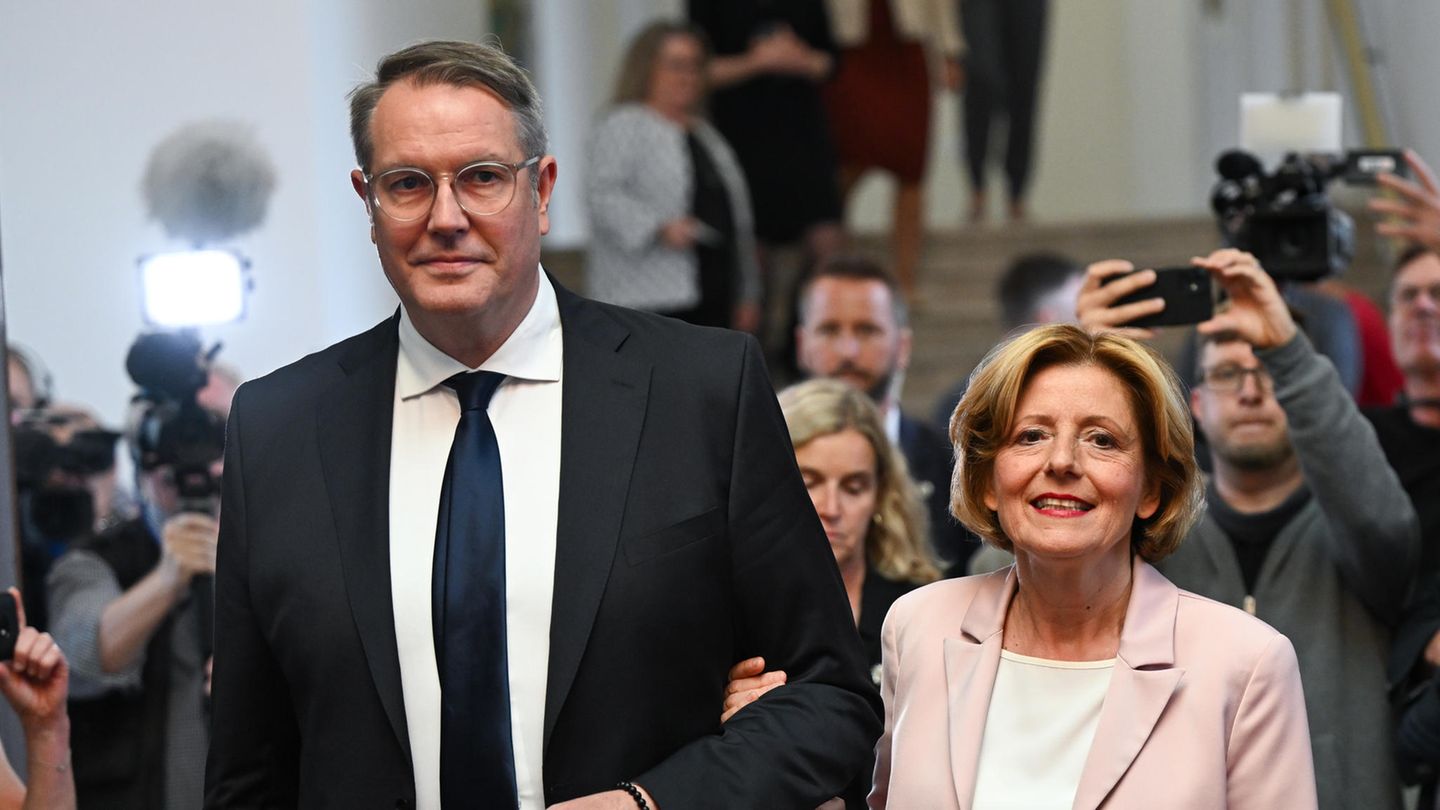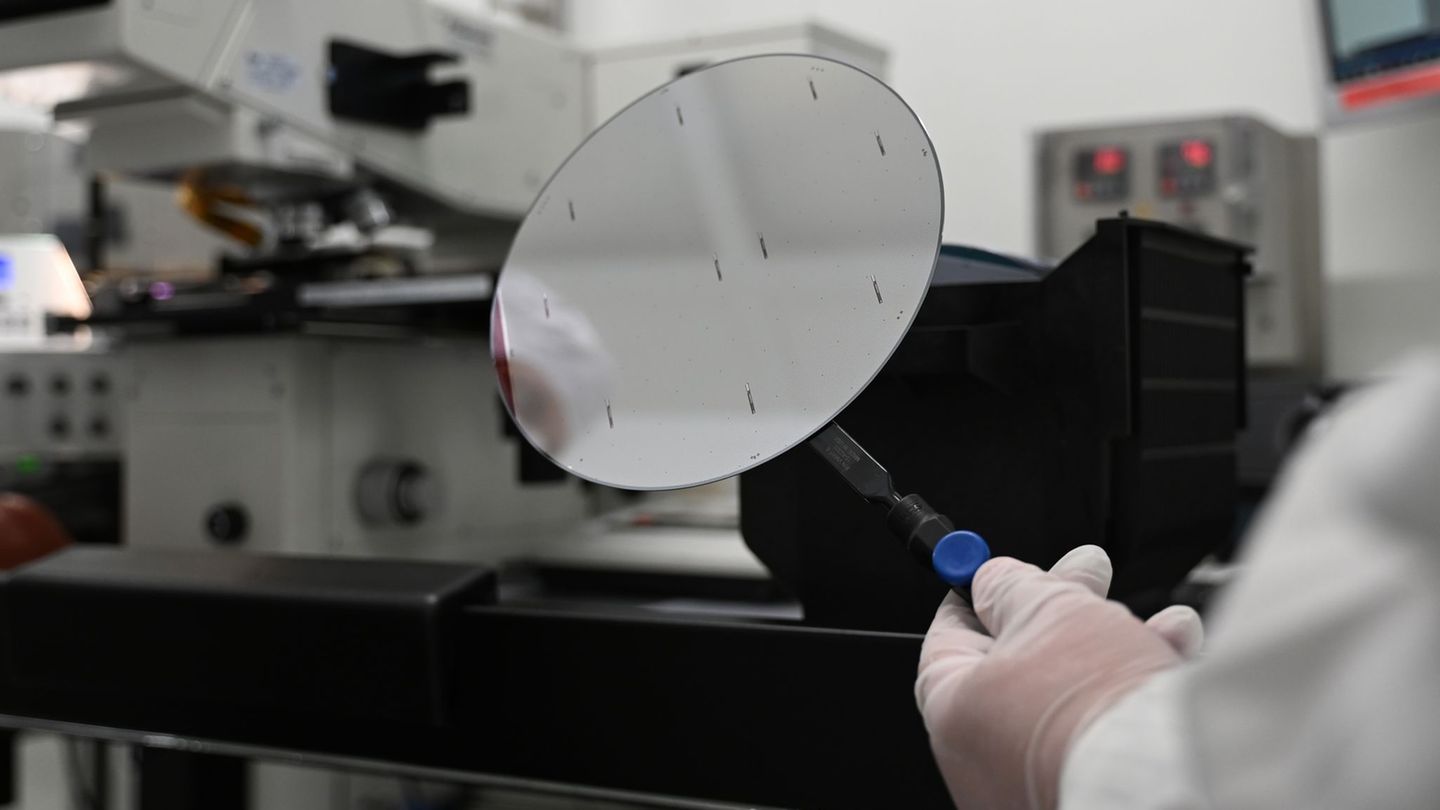There has been speculation for some time as to whether Malu Dreyer will remain in office until the end of the legislative period. The timing of the change is nevertheless surprising. This is what the Prime Minister says about her move.
The Prime Minister of Rhineland-Palatinate, Malu Dreyer (SPD), announced her resignation on Wednesday. She justified her decision with a lack of energy. “I hope you have always seen me as a Prime Minister who carried out her office with great passion and with great strength and energy,” said the SPD politician in Mainz. But she has realized that this strength is finite. She no longer has the energy she used to. “Unfortunately, my batteries don’t recharge as quickly anymore,” said the 63-year-old Dreyer.
“When I was sworn in, I promised the citizens that I would give all my strength to this country and its citizens. (…) That is why this decision has matured in me over the past few weeks and I made the decision a few days ago,” Dreyer continued. She had reached her limits and was running out of strength.
She is leaving with a heavy heart, “because I am not tired of office. I am leaving with a heavy heart because I have to admit that my strength is no longer sufficient to meet the demands and expectations that the citizens can place on me.”
Malu Dreyer sees Ahr Valley flood as a turning point
The outgoing Prime Minister has described the deadly flood disaster in the Ahr Valley in 2021 as a turning point in her life. In recent years, many crises have come together, said Deyer. In addition to the refugee movements, these include the corona pandemic and the “worst natural disaster in our country in the Ahr Valley”. For her, too, it is “a painful turning point that also divides my life or the life of me into a time before and after.”
All of these crises are putting a strain on people and have also caused divisions in Rhineland-Palatinate, said Dreyer. The Prime Minister has been repeatedly criticized in the past for not apologizing after the flood disaster in the Ahr Valley.
Alexander Schweitzer is successor candidate
Malu Dreyer’s successor will be SPD politician Alexander Schweitzer, who is currently the state labor minister in Rhineland-Palatinate. The Rhineland-Palatinate SPD faction has unanimously voted for Alexander Schweitzer as successor, said Dreyer. Schweitzer is the “right man at the right time” and has extensive experience. Dreyer said she has a “really good successor.”
Schweitzer said of his party colleague’s resignation that an era was coming to an end. “I’m stepping into very big shoes.” He was grateful for the trust that Dreyer had placed in him. After his election as head of government, Schweitzer wants to stick with the traffic light government in the state. He is also aiming for a government coalition with the Greens and the FDP after the state elections in 2026.
Federal Chancellor Olaf Scholz (SPD) has noted the announced resignation of the Rhineland-Palatinate Prime Minister “with great respect”. The Chancellor has “great appreciation” for Dreyer as head of government of a successful traffic light coalition, said deputy government spokeswoman Christiane Hoffmann on Wednesday in Berlin. “He values her very much as a reliable and popular politician who is not without reason very popular.”
resignation
Stages in Malu Dreyer’s career
The election of the new Prime Minister is to take place in the state parliament on July 10. The next state election is expected to take place in spring 2026. Dreyer has been Prime Minister of Rhineland-Palatinate since 2013. The 63-year-old is at the head of a traffic light coalition of the SPD, FDP and the Greens. Until her election as head of government, she was Minister of Labor and Social Affairs for eleven years under the then Prime Minister Kurt Beck (SPD).
Schweitzer has been Minister of Labor since 2021. Before that, he was chairman of the SPD parliamentary group for seven years. The lawyer joined the SPD in 1989. Between 2006 and 2009 he was already a member of the state parliament, and he has been there continuously since 2013. The 50-year-old was State Secretary in the Ministry of Economic Affairs. Between January 2013 and November 2014 he was Minister of Social Affairs under Dreyer. Since 2021 he has been at the helm of the newly restructured Ministry of Labor and Social Affairs.
Note: This article has been updated several times and supplemented with additional information and statements.
Source: Stern
I have been working in the news industry for over 6 years, first as a reporter and now as an editor. I have covered politics extensively, and my work has appeared in major newspapers and online news outlets around the world. In addition to my writing, I also contribute regularly to 24 Hours World.




